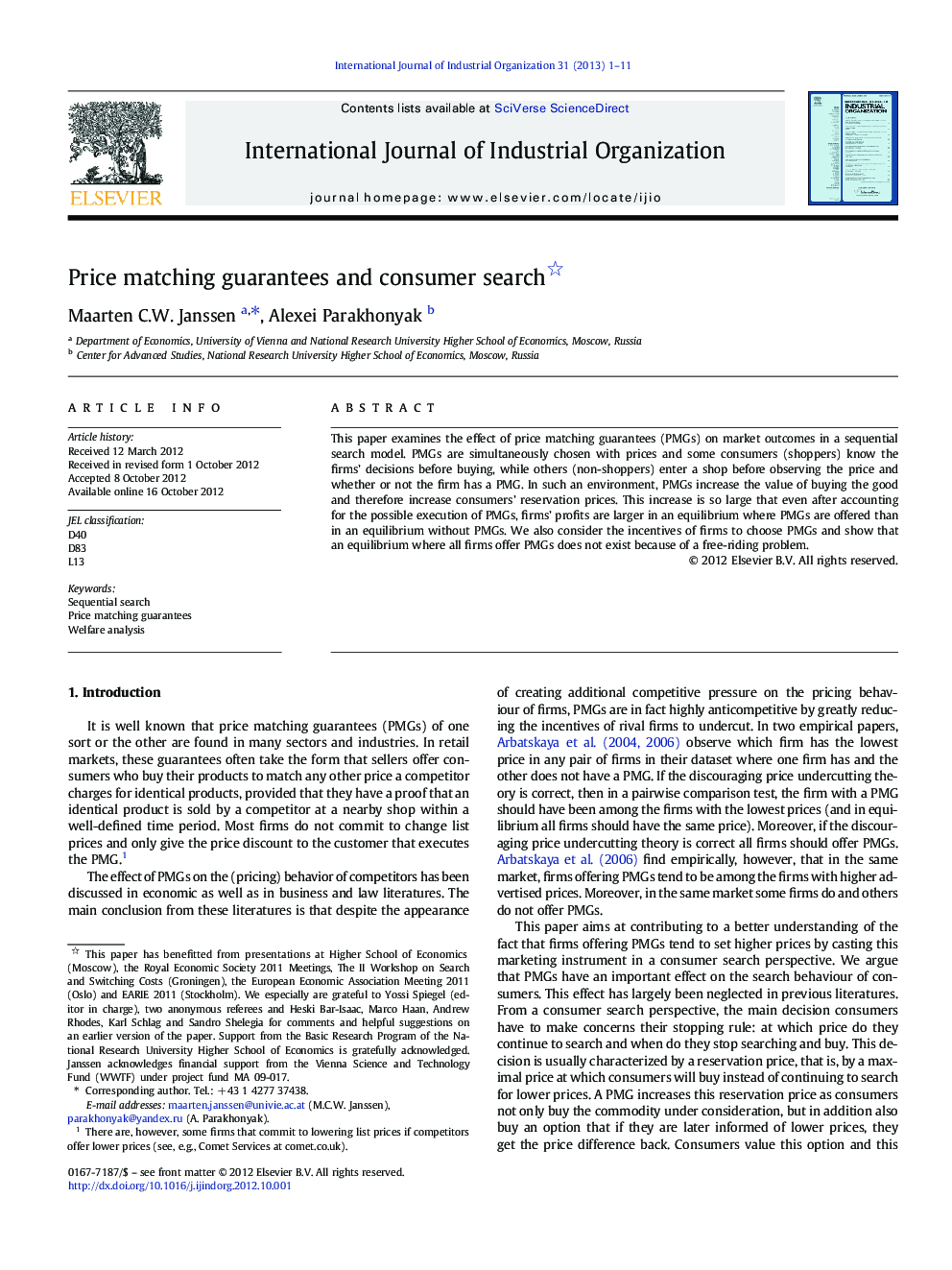| Article ID | Journal | Published Year | Pages | File Type |
|---|---|---|---|---|
| 5078049 | International Journal of Industrial Organization | 2013 | 11 Pages |
This paper examines the effect of price matching guarantees (PMGs) on market outcomes in a sequential search model. PMGs are simultaneously chosen with prices and some consumers (shoppers) know the firms' decisions before buying, while others (non-shoppers) enter a shop before observing the price and whether or not the firm has a PMG. In such an environment, PMGs increase the value of buying the good and therefore increase consumers' reservation prices. This increase is so large that even after accounting for the possible execution of PMGs, firms' profits are larger in an equilibrium where PMGs are offered than in an equilibrium without PMGs. We also consider the incentives of firms to choose PMGs and show that an equilibrium where all firms offer PMGs does not exist because of a free-riding problem.
⺠PMGs impacts on search behavior, increasing reservation prices of consumers. ⺠Higher reservation prices allow firms offering PMGs to raise list prices. ⺠An indirect strategic effect is that no PMG firms raise their prices themselves. ⺠Comparing prices between firms with and without PMGs underestimates effect of PMGs. ⺠The more consumers exchange information the stronger the higher the prices.
